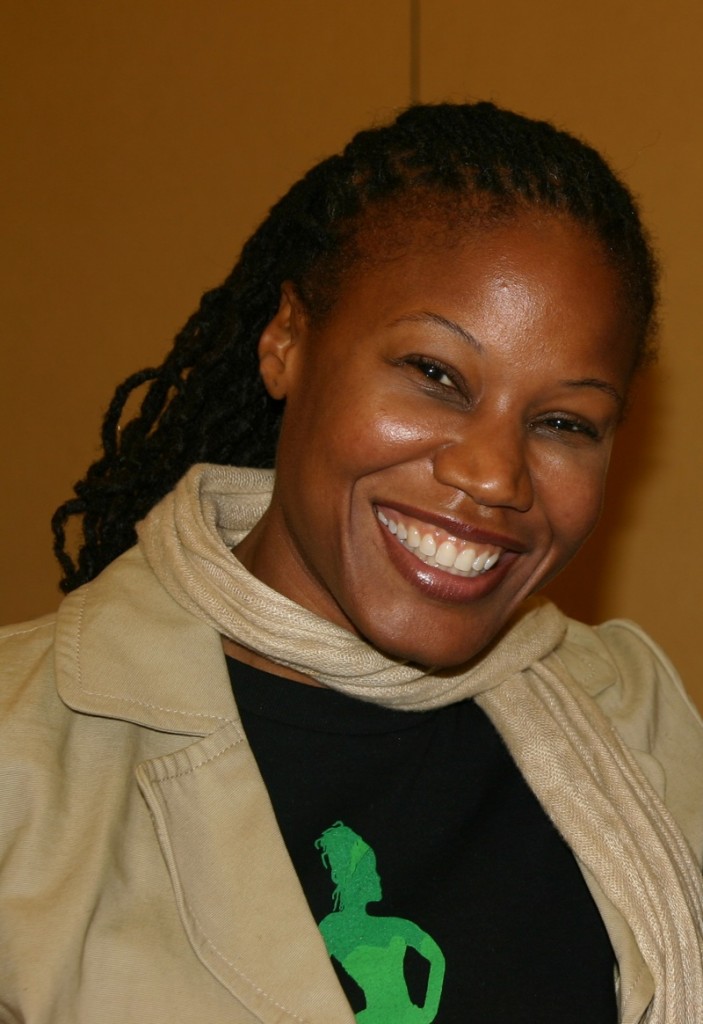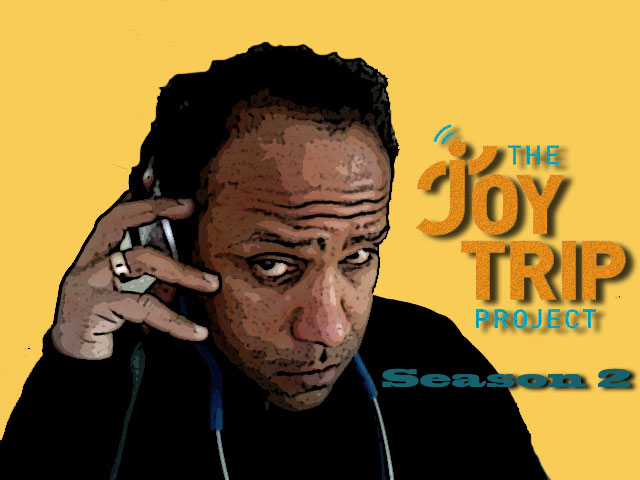
An interview with urban
revitalization strategist Majora Carter
JTP:
Delegates from about 190 countries are gathering over the next two weeks at the
United Nations Climate Change Conference in Copenhagen. Although this is a landmark event, the largest meeting ever to discuss the environmental future of our planet. I’m a little concerned that we may not be talking about the most important issues.
The other night on
NPR David Kestenbaum reported on the first day of the conference. In his report on
All Things Considered he said everyone pretty much agrees that we have to do something about climate change. But how I see it where the problem lies is that the delegates also seem to share the same disagreements
NPR:
In fact most of the disagreements, they’re all about money. Developing countries like Bolivia are arguing “Hey The global warming problem? you in the developed world made it. So to solve it you’re going to have to give us money to adapt and to keep our emissions down as we grow.
JTP:
The industrial growth that caused the climate change crisis in the first place will apparently continue. You see it seems that the Copenhagen delegates are really only arguing about who gets to continue to pollute the atmosphere with carbon gas emissions and how much. The conversation so far seems to be relegated to trading carbon credits for cash so the developing world can continue to build factories and produce consumer goods. But at what cost? What about the environment? And what about millions of disenfranchised people in the U.S. and around the world that will be most directly impacted as our planet’s climate continues to change in the wake of human progress?
I won’t be attending the conference in Copenhagen. But a few weeks ago I did attend the
Breaking the Color Barrier to the Great Outdoors conference in Atlanta. A few hundred African American Environmentalist gathered to talk among other things about the role people of color can play in protecting the natural world. There I met
Majora Carter, the 2005 winner of
the MacArthur Foundation Genius Grant. She received $500,000 to developed her ideas on creating sustainable urban communities. And while we didn’t talk about Copenhagen in particular Carter has a rather unique perspective how best to curb some of the social effects of Climate Change.
Carter:
The McArthur Foundation dubbed me an urban revitalization strategist. Which I love, because of the work that I did around pioneering one of the first green jobs training systems in the country, really doing community based, led project development in one of the poorest congressional districts in the country that’s also one of the most environmentally challenged. And the idea was that you can do development that met both the environmental as well as economic needs of a very poor communities and give them the tools they need to enjoy it and be a part of its development.
JTP:
The environmental issues that our planet faces aren’t limited to carbon emissions. Though green houses gases are indeed the primary cause of global warming it’s the institutions and practices of human behavior that create them. Carter believes that we need to develop community based initiatives that produce green jobs and allow ordinary people take an active part in the cessation carbon emitting industries. In order to make lasting change in the fight again climate change we have to rethink how we develop and live in our urban centers. And for many communities around world that’s going to mean taking a hard look at issues of social justice, how we treat the urban poor as well as racial and ethnic minorities. I’m James Mills and you’re listening to The Joy Trip Project.
 Racism is a word that seldom comes up in a discussion of environmental protection. Clean air, water and soil are universal human values that transcend ethnic identity or the color of one’s skin. But in metropolitan centers around the United States minority communities are being inundated with a disproportionate burden of pollution. Industrial waste, municipal garbage and sewage treatment plants are routinely deposited in areas predominately populated by low income African Americans and Hispanics.
In 1988 a community organizer named Peggy Shepard was asked to help address concerns around the creation of one such sewage treatment plant. A facility built in the New York City burrow of Harlem.
Racism is a word that seldom comes up in a discussion of environmental protection. Clean air, water and soil are universal human values that transcend ethnic identity or the color of one’s skin. But in metropolitan centers around the United States minority communities are being inundated with a disproportionate burden of pollution. Industrial waste, municipal garbage and sewage treatment plants are routinely deposited in areas predominately populated by low income African Americans and Hispanics.
In 1988 a community organizer named Peggy Shepard was asked to help address concerns around the creation of one such sewage treatment plant. A facility built in the New York City burrow of Harlem.



 It’s hard to believe. The Joy Trip Project just turned over its first full year of production. The podcast, blog and photo stream posted to the Internet one year ago this week. And after 12 solid months of experimentation, hand wringing and soul searching the JTP is slowly emerging as a recognizable voice in the social media mainstream. And as the feed sets out its second lap around the sun the JTP is moving forward with a profound sense of purpose and a worthwhile new mission.
It’s hard to believe. The Joy Trip Project just turned over its first full year of production. The podcast, blog and photo stream posted to the Internet one year ago this week. And after 12 solid months of experimentation, hand wringing and soul searching the JTP is slowly emerging as a recognizable voice in the social media mainstream. And as the feed sets out its second lap around the sun the JTP is moving forward with a profound sense of purpose and a worthwhile new mission.

You must be logged in to post a comment.